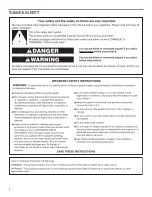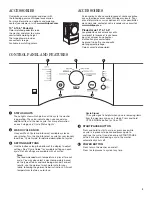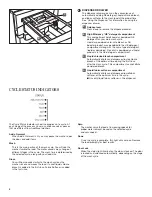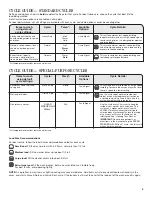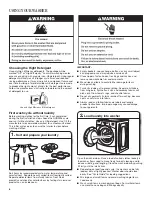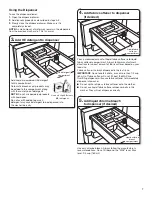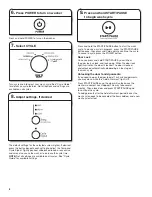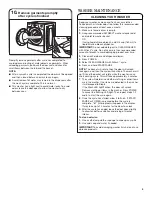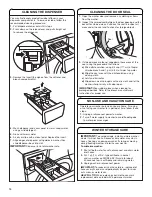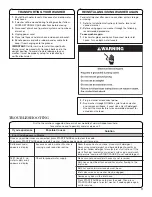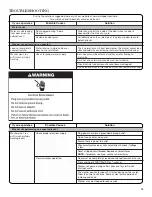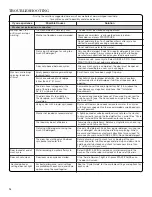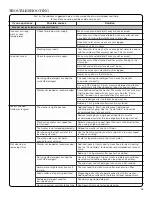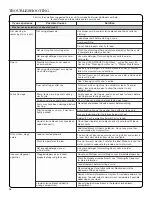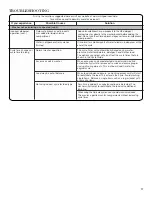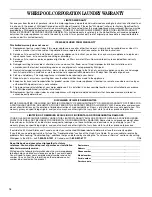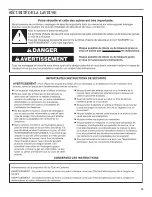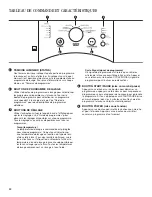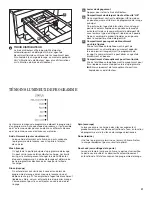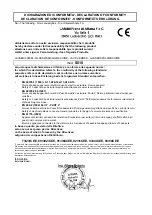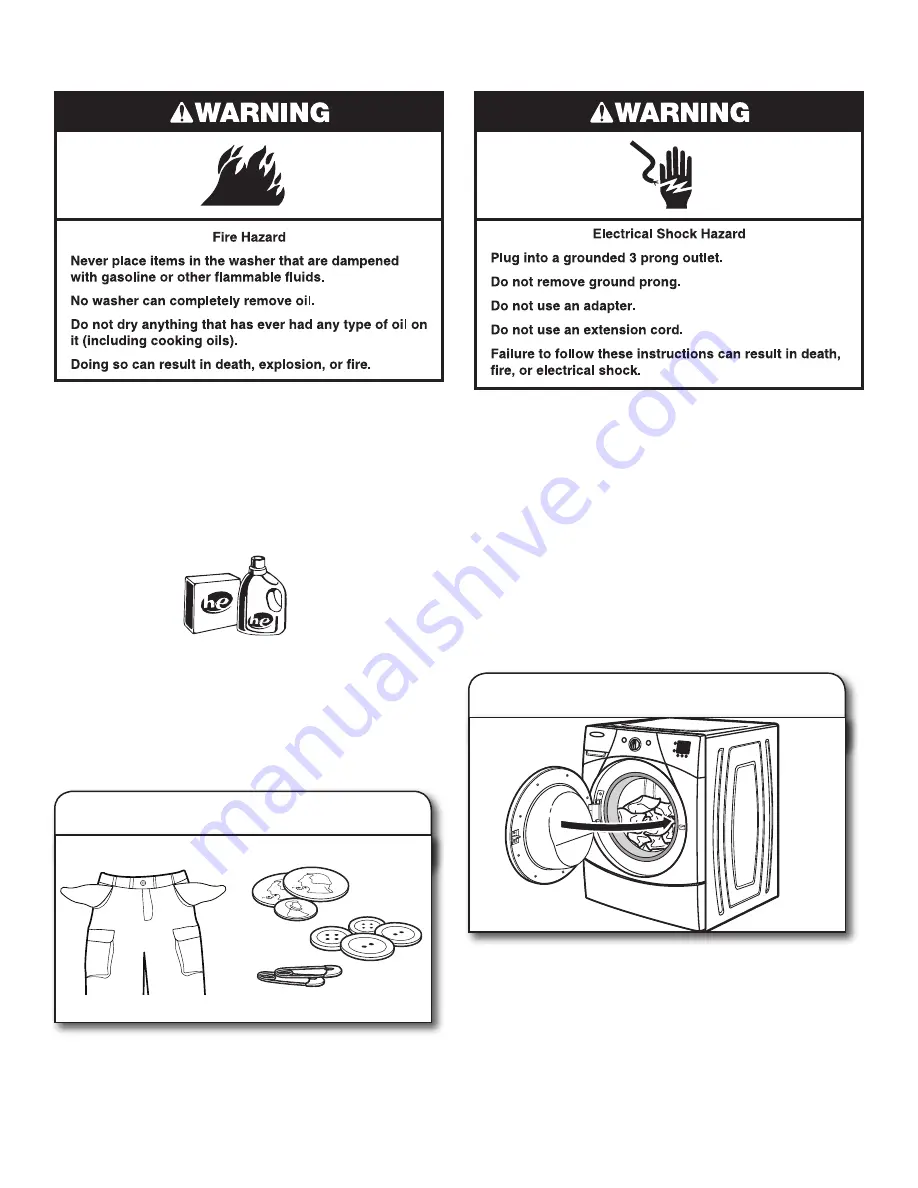
6
USING YOUR WASHER
Sort items by recommended cycle, water temperature, and
colorfastness. Separate heavily soiled items from lightly soiled.
Separate delicate items from sturdy fabrics. Treat stains
promptly and check for colorfastness by testing stain remover
products on an inside seam.
1.
Sort and prepare your laundry
Open the washer door. Place a load of sorted clothes loosely in
the washer. Items need to move freely for best cleaning and to
reduce wrinkling and tangling. Close the washer door by pushing
it firmly until the latch clicks.
n
Depending on load type and cycle, the washer can be fully
loaded, but not tightly packed. Washer door should close
easily. See “Cycle Guide” for loading suggestions.
n
Mix large and small items and avoid washing single items.
Load evenly.
n
Wash small items in mesh garment bags. For multiple items,
use more than one bag and fill bags equally.
2.
Load laundry into washer
First wash cycle without laundry
Before washing clothes for the first time, if not completed
during the final installation step, choose the NORMAL cycle
and run it without clothes. Use only HE detergent. Use 1/2 the
manufacturer’s recommended amount for a medium-size load.
This initial cycle serves to ensure the interior is clean before
washing clothes.
Choosing the Right Detergent
Use only High Efficiency detergents. The package will be
marked “HE” or “High Efficiency.” Low-water washing creates
excessive sudsing with a regular non-HE detergent. Using regular
detergent will likely result in longer cycle times and reduced
rinsing performance. It may also result in component failure and,
over time, build-up of mold or mildew. HE detergents are made
to produce the right amount of suds for the best performance.
Follow the manufacturer’s instructions to determine the amount
of detergent to use.
Use only High Efficiency (HE) detergent.
IMPORTANT:
n
Empty pockets. Loose change, buttons, or any small object
can plug pumps and may require a service call.
n
Close zippers, fasten hooks, tie strings and sashes, and
remove non-washable trim and ornaments.
n
Mend rips and tears to avoid further damage to items
during washing.
n
Turn knits inside out to prevent pilling. Separate lint-takers
from lint-givers. Synthetics, knits, and corduroy fabrics will
pick up lint from towels, rugs, and chenille fabrics.
n
Do not dry garments if stains remain after washing, because
heat can set stains into fabric.
n
Always read and follow fabric care labels and laundry
product instructions. Improper usage may cause damage
to your garments.
Summary of Contents for W10484486A
Page 2: ...2 WASHER SAFETY ...
Page 19: ...19 SÉCURITÉ DE LA LAVEUSE ...


